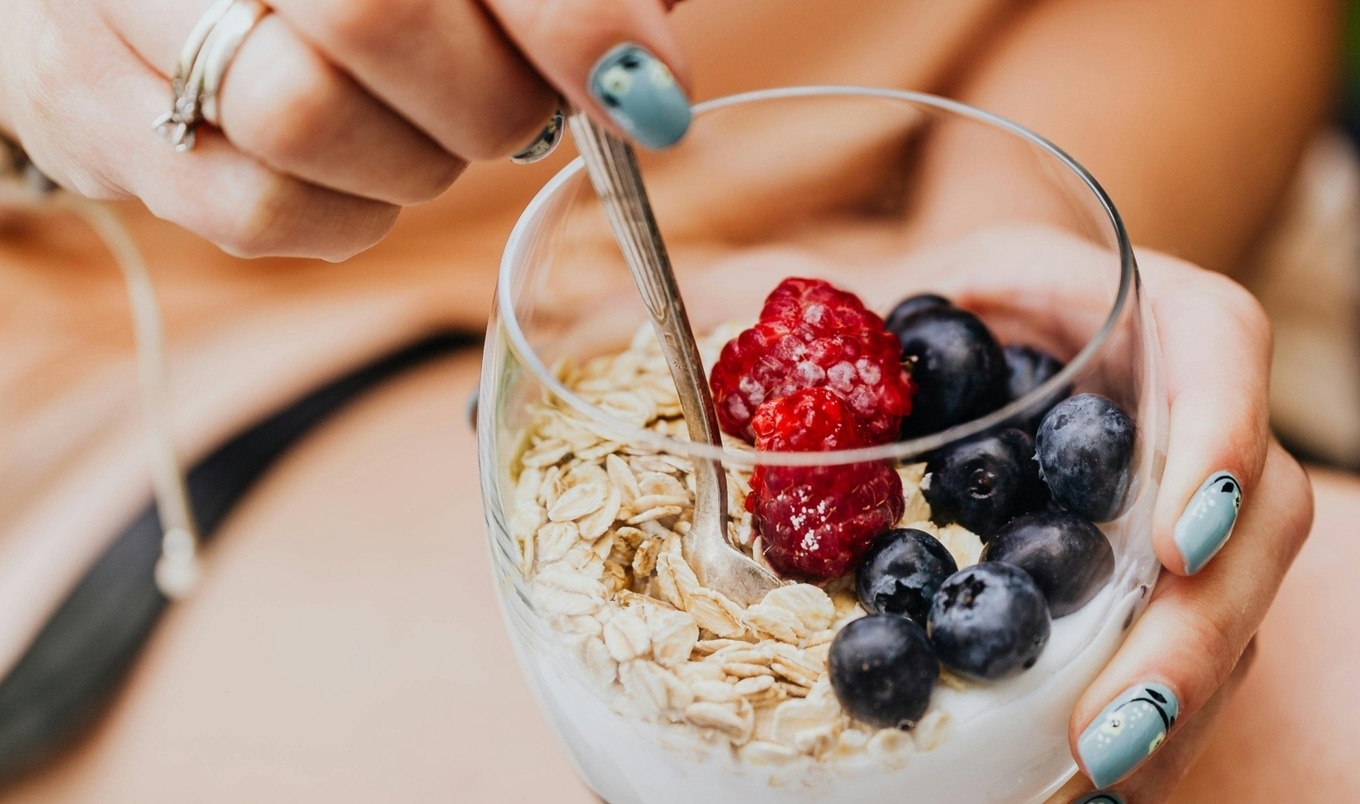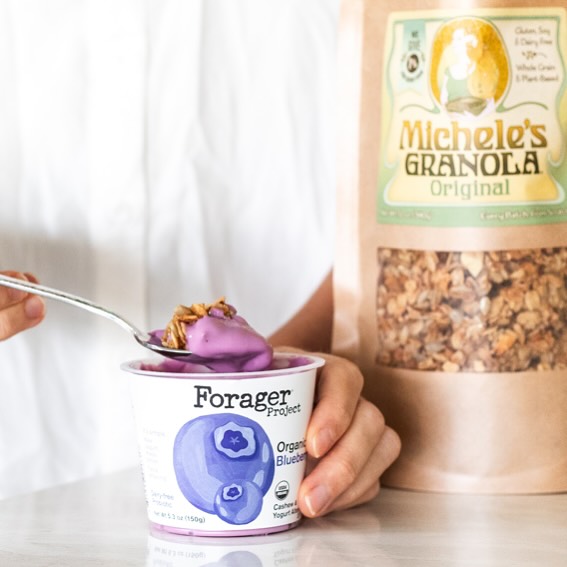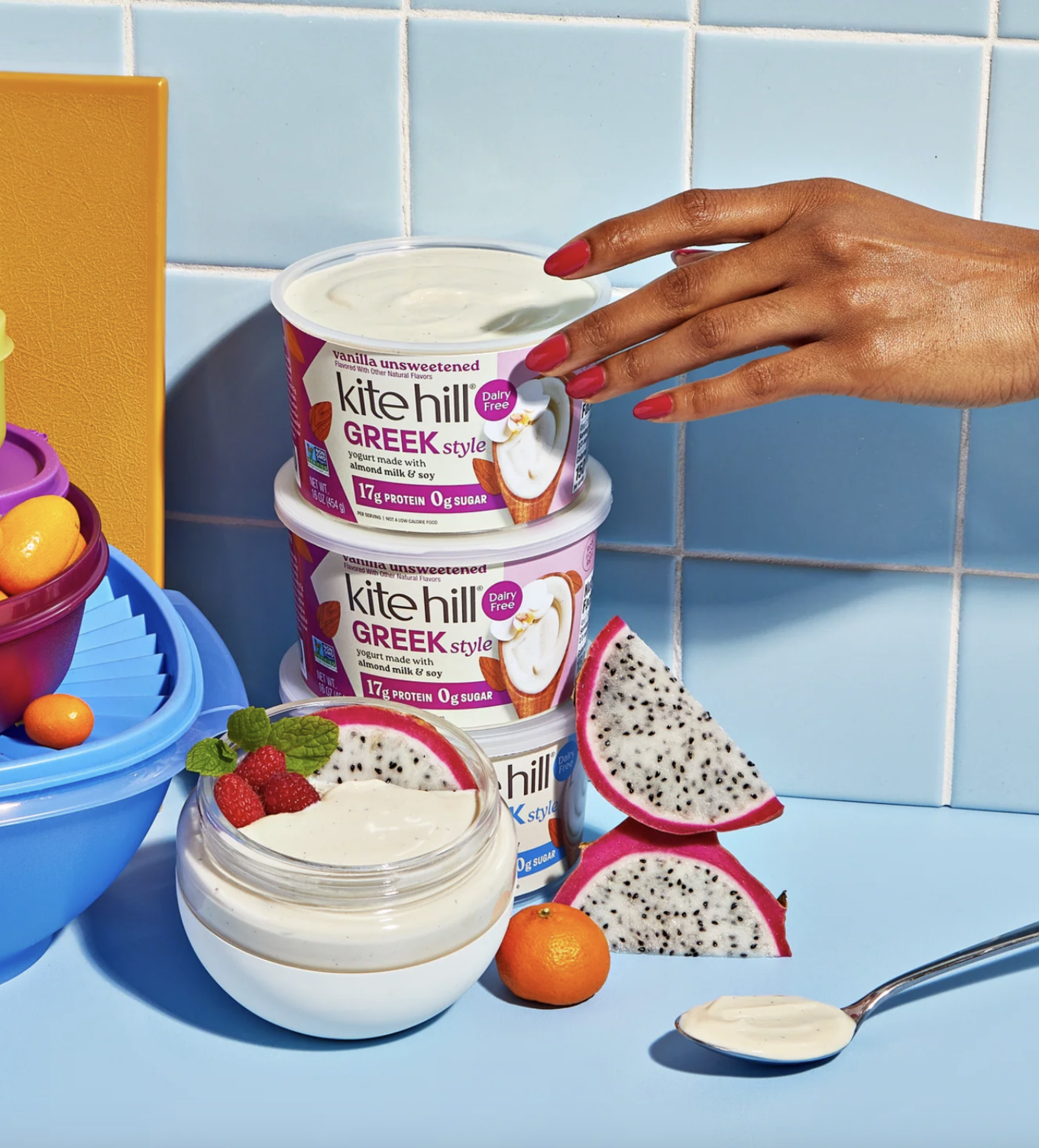A recent study from Harvard T.H. Chan School of Public Health and Mass General Brigham linked yogurt consumption with a reduced risk of developing a specific and deadly subtype of colorectal cancer. The research, published in Gut Microbes, analyzed data from more than 151,000 adults over several decades and found that individuals who consumed two or more servings of yogurt weekly had a lower risk of developing Bifidobacterium-positive proximal colon cancer. This subtype affects the right side of the colon and is among the most difficult to treat.
“Yogurt contains many different strains of bacteria, of which Bifidobacterium and Lactobacillus are frequently found, and these good bacteria can often out-compete more harmful bacteria that cause inflammation, leading to the breakdown of the lining of the gut, allowing bacteria into the gut wall,” colorectal surgeon Anne Mongiu, MD, PhD, explains.
This isn’t a cure-all, however. Mongiu adds that while yogurt did not lower the risk of all colorectal cancers, the microbial activity in the gut plays a significant role in immune regulation and inflammation reduction.
But what if you’ve swapped your dairy for almond, oat, or coconut yogurt? Are you missing out on the benefits, or can plant-based alternatives measure up?
What makes dairy yogurt protective?
Yogurt’s benefits stem primarily from live active cultures like Bifidobacterium and Lactobacillus, which help maintain a balanced gut microbiome. These probiotics promote a healthier gut lining and reduce the kind of chronic inflammation associated with tumor development, explains gastroenterologist James Cox, MD.

These strains are naturally present in dairy fermentation, which gives traditional yogurt its distinct tang and thick texture. But they can also be added to non-dairy alternatives. The key is not the milk source, but whether probiotics are introduced and remain viable by the time the yogurt hits your spoon.
Can dairy-free yogurt deliver the same gut health benefits?
The short answer: potentially, yes—if formulated correctly. Many non-dairy yogurts now include live and active cultures, sometimes the very same strains found in dairy-based versions. However, not all plant-based yogurts are created equal.
Coconut-based yogurts tend to be higher in fat and lower in protein, while almond and oat versions often have added starches and thickeners to achieve the desired texture. Still, many are fortified with calcium, vitamin D, and probiotics to help close the nutritional gap.
 Forager
Forager
When opting for dairy-free yogurt, look for labels that explicitly say ‘contains live and active cultures. These are the products most likely to support the microbiome in a way similar to dairy yogurts.
What about omegas, fiber, and anti-inflammatory benefits?
This is where plant-based yogurts may shine. While traditional dairy yogurt is rich in protein and calcium, it’s generally low in fiber and omega-3 fatty acids. Some non-dairy yogurts, on the other hand, are made with chia seeds, flax, or nuts—ingredients that contribute fiber, omega-3s, and polyphenols.
These compounds are associated with better gut health and lower inflammation. In fact, research published in the Journal of Clinical Gastroenterology suggests that diets rich in omega-3 fatty acids and dietary fiber may improve gut barrier function and reduce colorectal cancer risk.
 Kite Hill
Kite Hill
Fiber from plant-based sources encourages the production of short-chain fatty acids, which nourish colon cells and maintain gut lining integrity. In that sense, a well-formulated plant-based yogurt might offer additional benefits that dairy doesn’t.
Just be mindful of sugar. Some non-dairy yogurts contain high amounts of added sweeteners, which can offset potential gut benefits. Cox recommends opting for plain varieties and sweetening them naturally. Fruit or a drizzle of honey alternative are great choices for sweetening yogurt.
What should you look for in a dairy-free yogurt?
If you’re seeking a plant-based yogurt that supports colon health, keep an eye out for the following ingredients and nutrients:
-
Live cultures: Look for probiotic strains like Bifidobacterium and Lactobacillus on the label.
-
Added fiber: Products made with oats, chia, flax, or inulin fiber can help meet daily fiber goals.
-
Healthy fats: Yogurts made from nuts or with added omega-3s can support anti-inflammatory functions.
-
Low sugar content: Choose unsweetened or minimally sweetened options whenever possible.
The bigger picture: colon cancer prevention beyond yogurt
Yogurt is just one component of a colorectal cancer prevention strategy. A plant-forward, high-fiber diet remains one of the strongest defenses.
Vegetables, fruits, legumes, and whole grains offer consistent, well-documented benefits. Add in fermented foods like sauerkraut or miso, and you’re supporting gut health from multiple angles.
BECOME A VEGNEWS VIP: Get exclusive product deals, freebies, and perks galore!

Research has shown that people who eat high amounts of red and processed meat may increase their colorectal cancer risk by as much as 30 percent. Meanwhile, excessive alcohol consumption has been linked to a 17 to 47 percent increased risk.
So if you’re reaching for yogurt as part of your wellness routine, plant-based options can absolutely play a role—as long as they are crafted with your microbiome in mind.
For more plant-based stories like this, read:
JUMP TO ... Latest News | Recipes | Guides | Health | Subscribe








